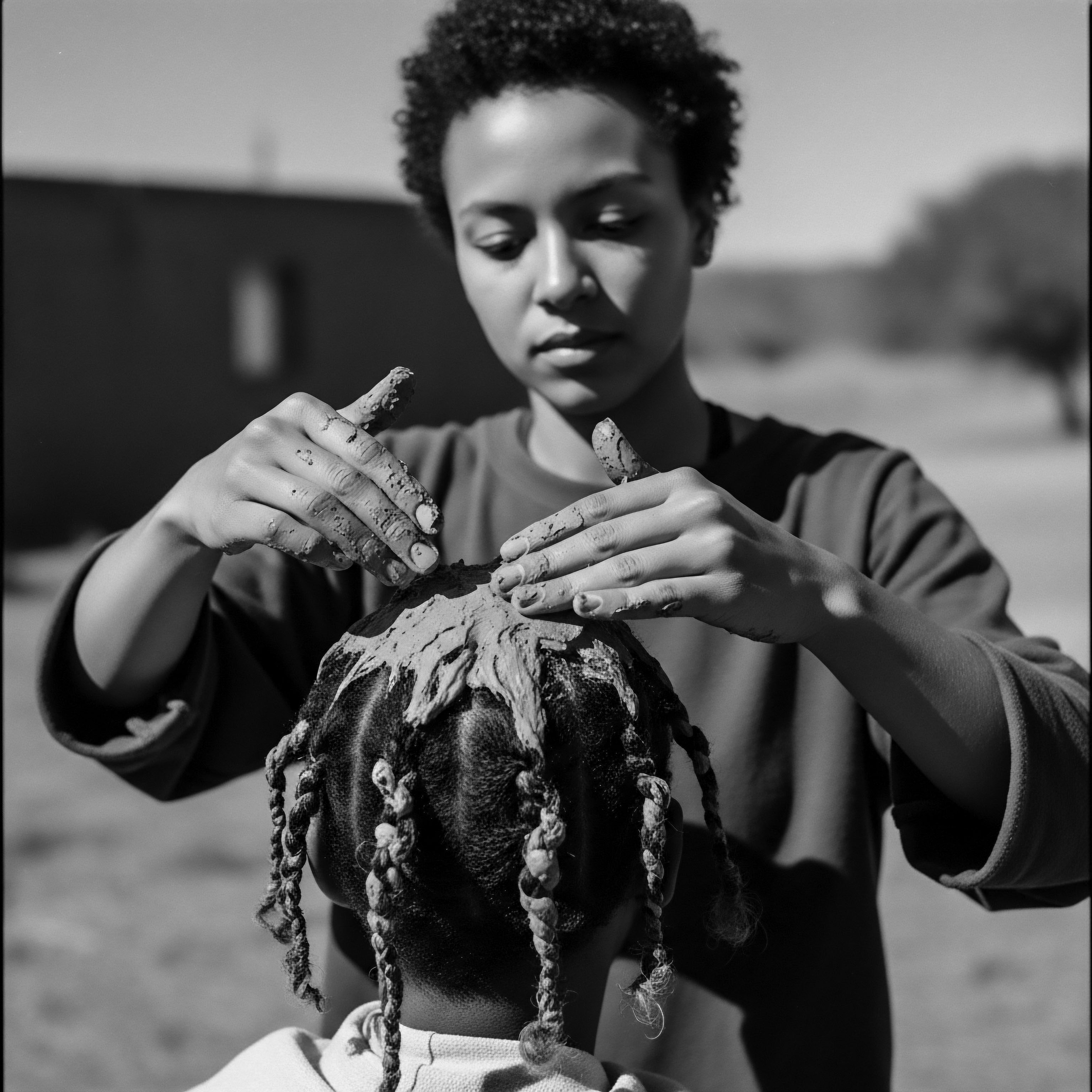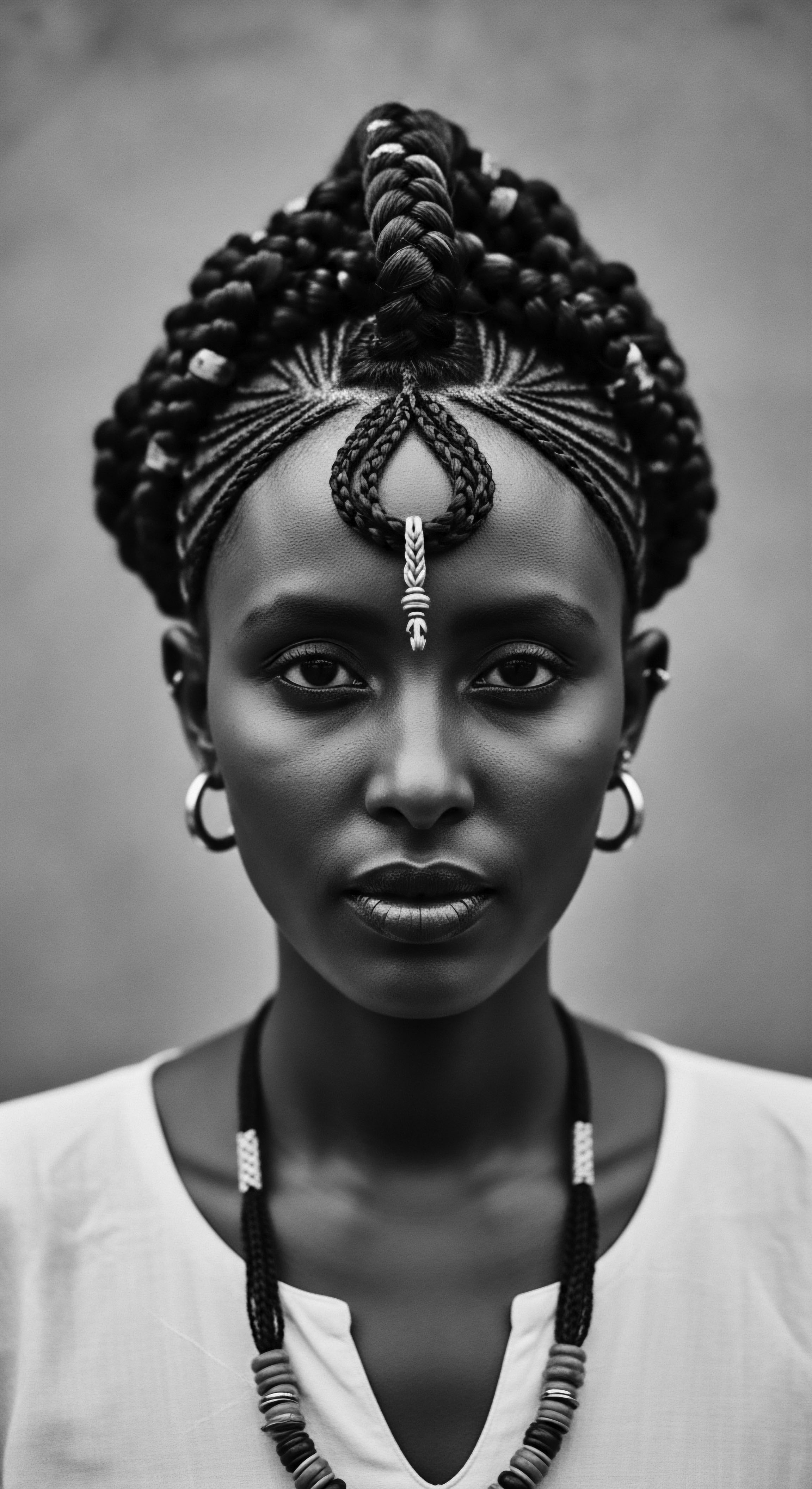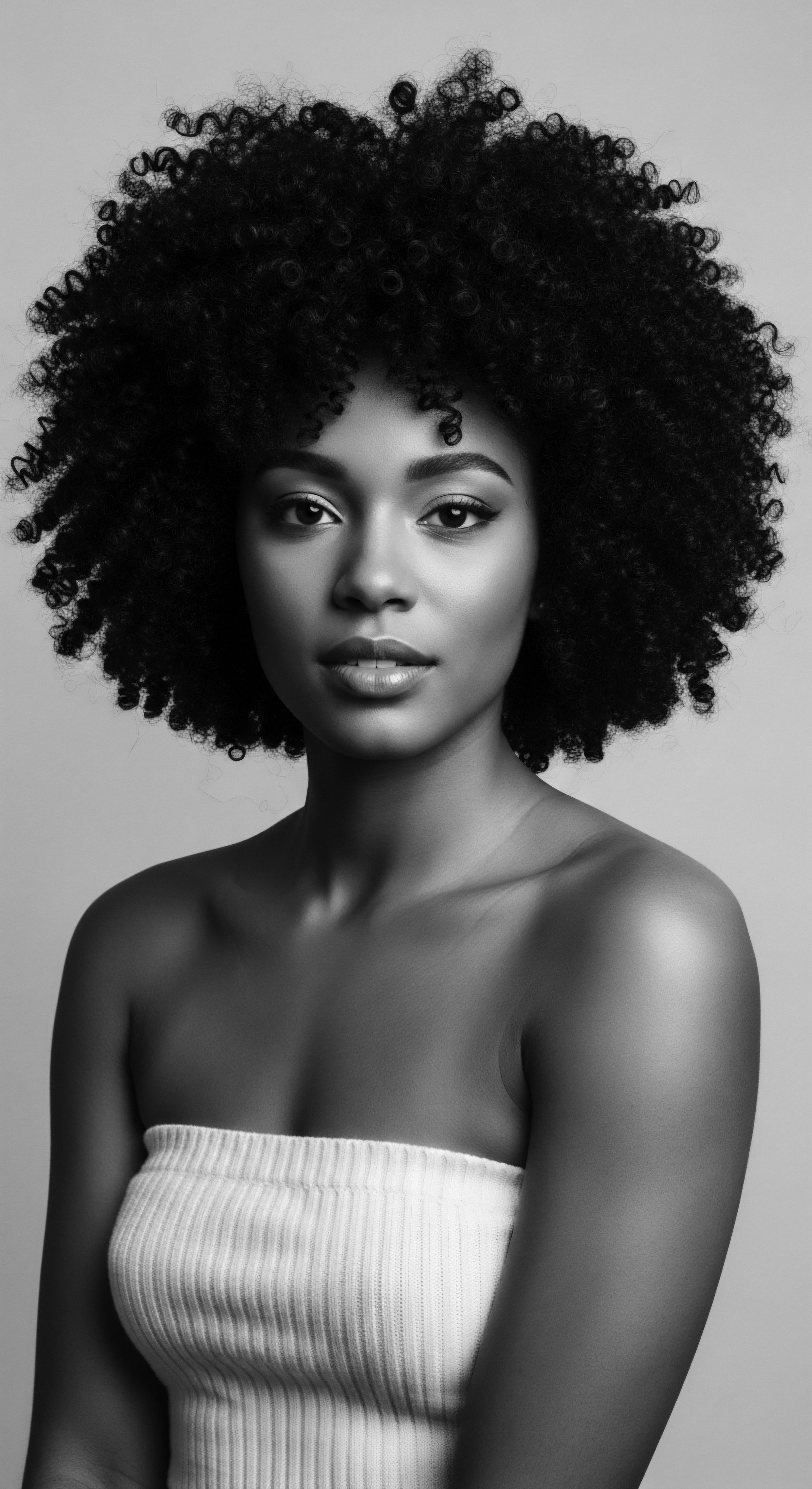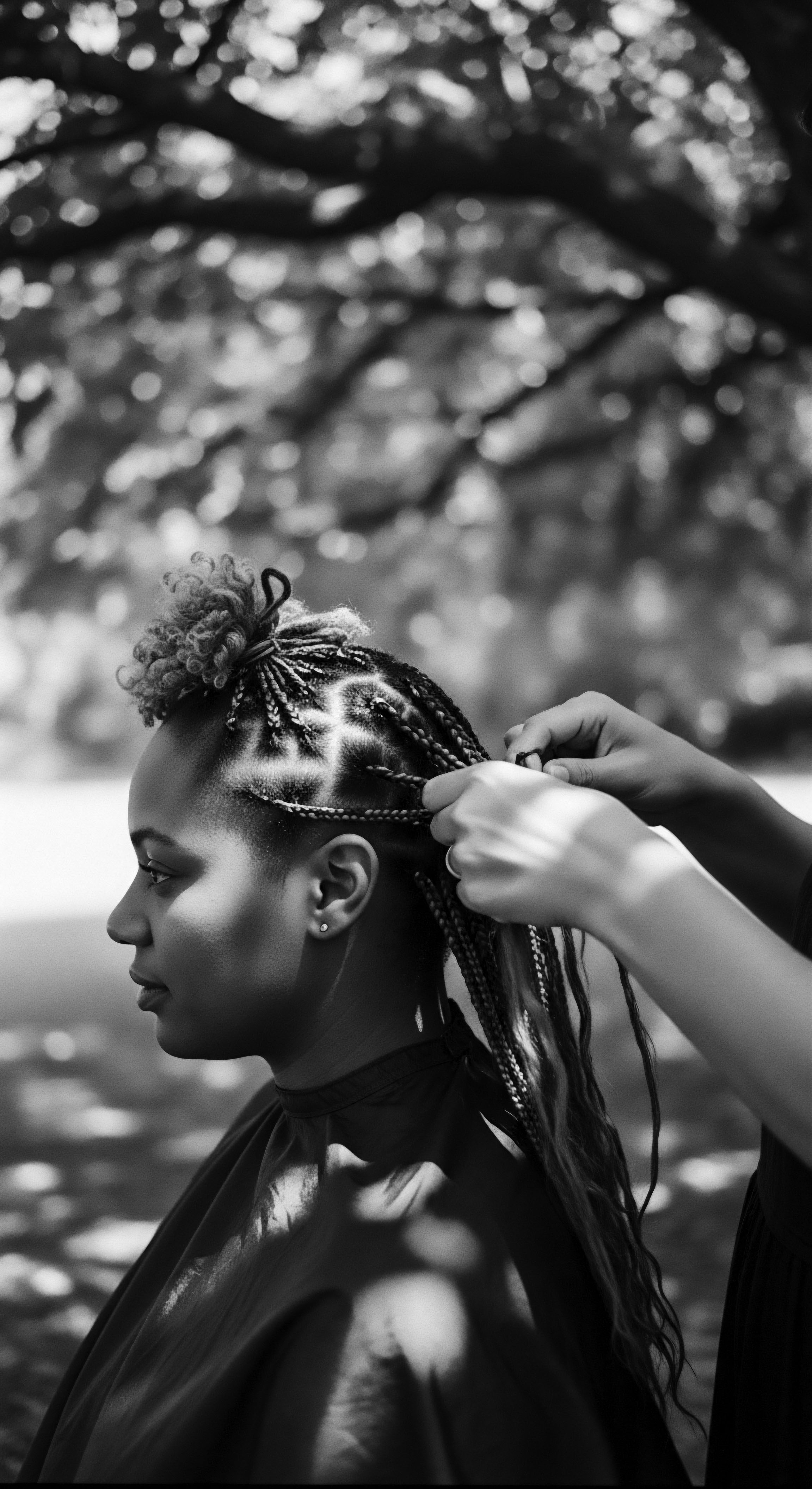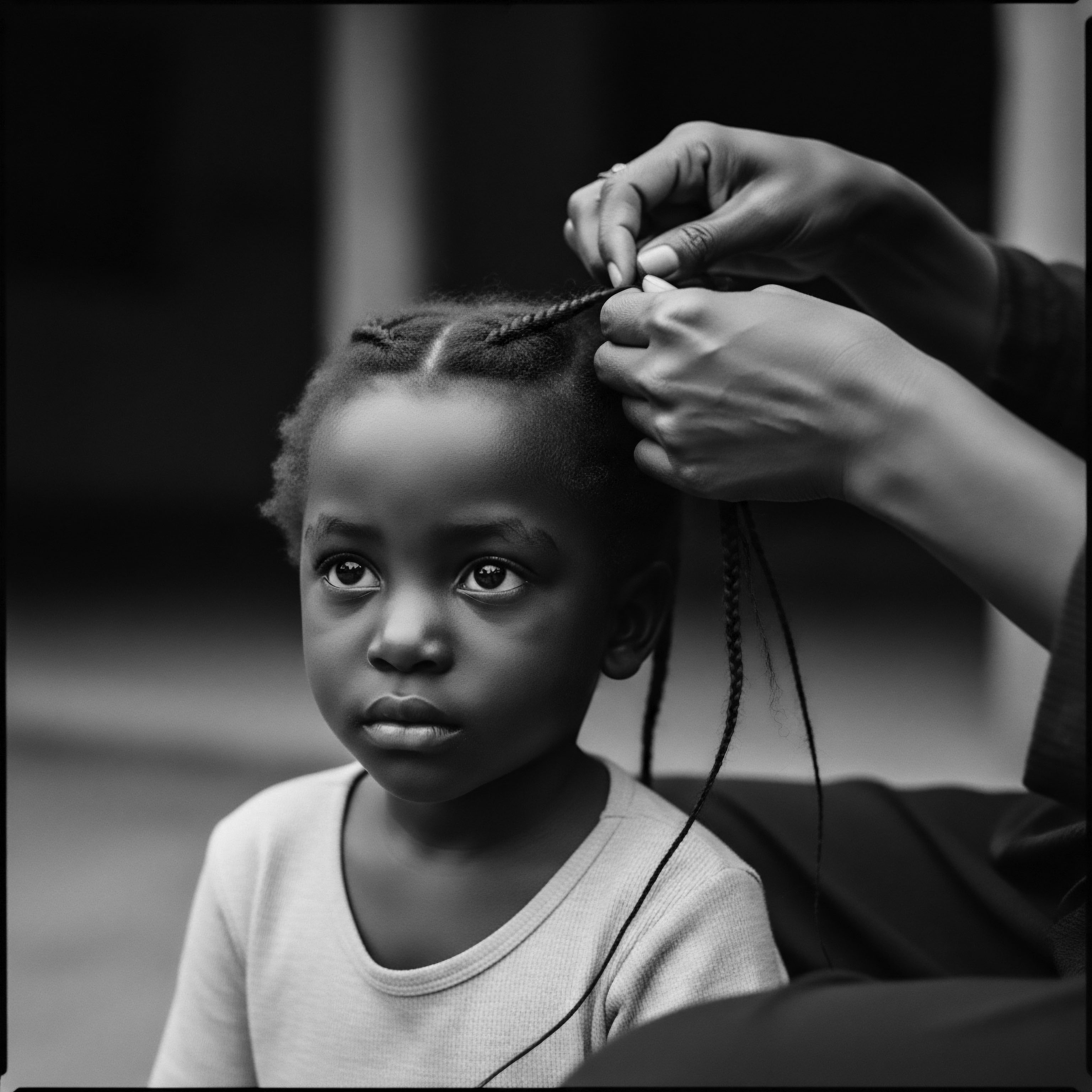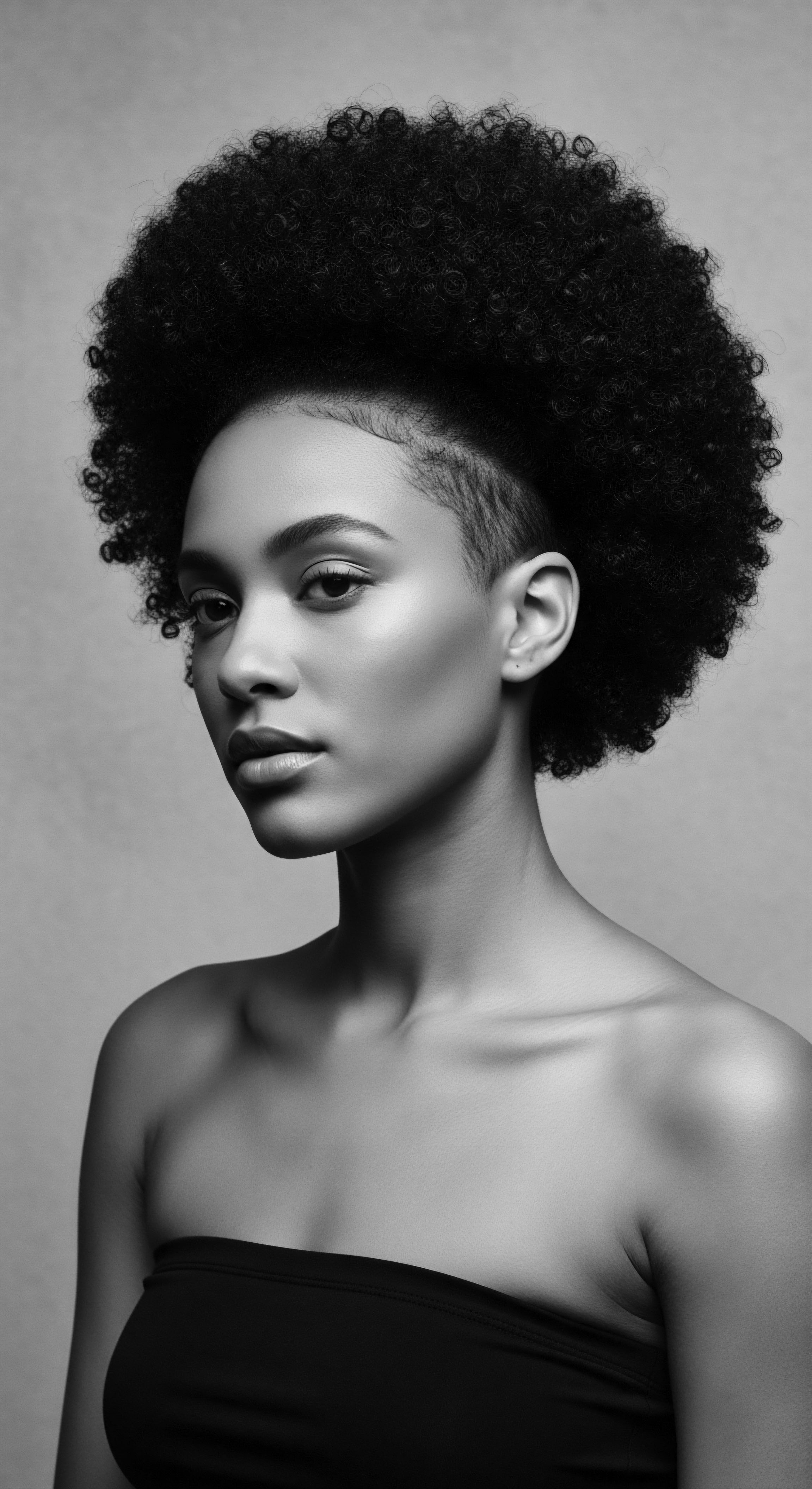
Fundamentals
Natural Haircare, at its most elemental, speaks to the mindful tending of hair in its unaltered state, free from chemical alterations that permanently modify its original texture. This practice centers on nurturing the hair’s inherent structure, whether coils, curls, waves, or kinks, through methods that respect its biological integrity. It involves a deep acknowledgment of the hair’s natural hydration needs and its unique response to environmental factors, fostering a gentle regimen that supports health from the follicle to the strand’s tip.
The significance of Natural Haircare extends beyond mere cosmetic preference; it represents a return to elemental practices and a re-engagement with the hair’s innate rhythms. This approach often involves using ingredients sourced directly from nature, mirroring ancient wisdom where botanical extracts and natural oils were the primary tools for maintenance. The intention is to create a symbiotic relationship with one’s hair, allowing it to flourish in a way that is both authentic and resilient.
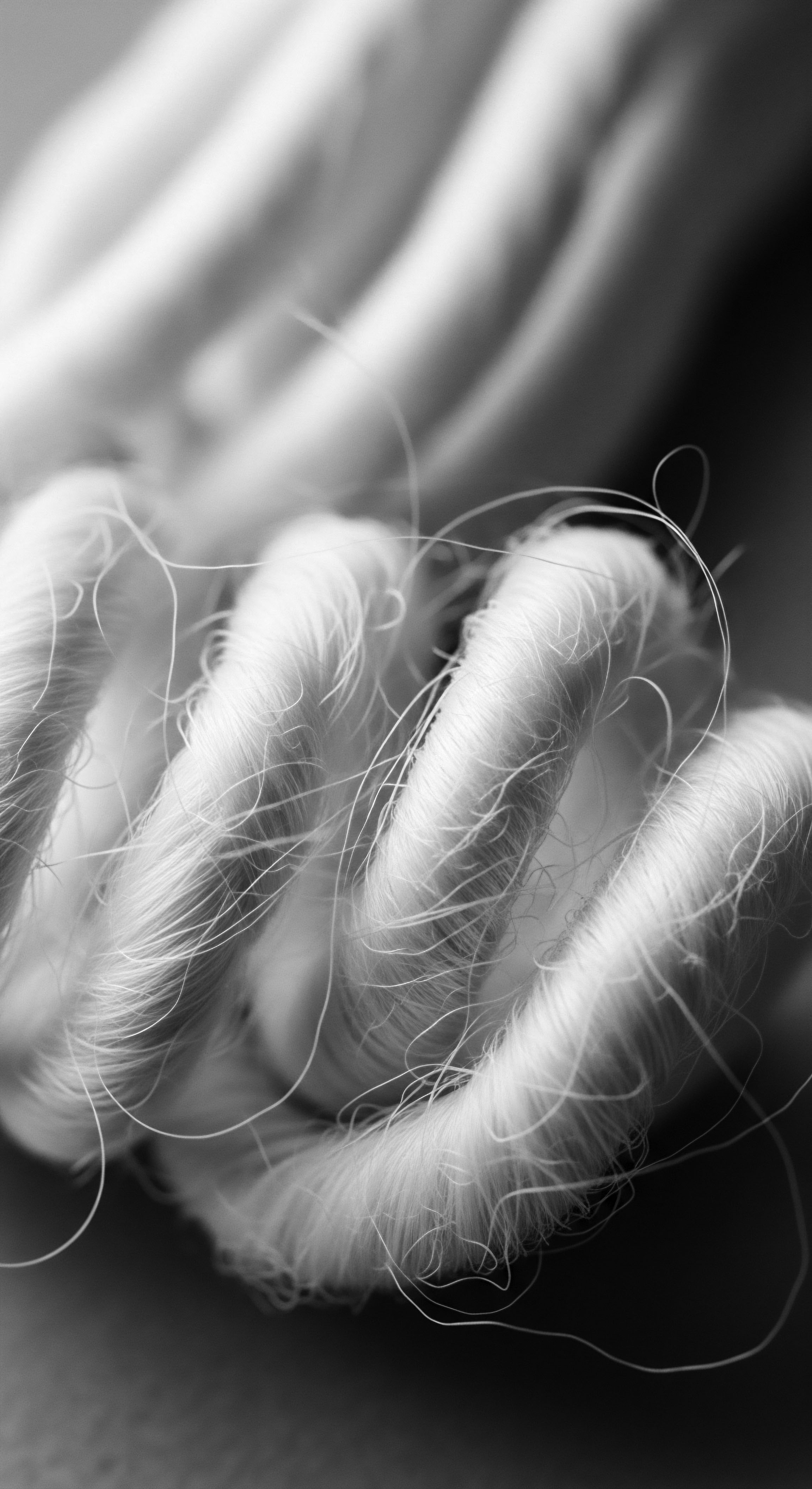
Core Principles of Natural Haircare
At the heart of Natural Haircare lies a commitment to simplicity and efficacy, guiding choices about products and practices. These foundational tenets pave the way for a deeper connection to one’s hair, fostering health and vibrancy.
- Moisture Retention ❉ Textured hair, with its unique helical structure, can be prone to dryness because natural oils from the scalp travel less easily down the strand. Natural Haircare prioritizes methods and products that seal in hydration.
- Gentle Handling ❉ The structural nuances of coils and curls necessitate careful manipulation to avoid breakage. Detangling wet hair with fingers or wide-tooth combs, avoiding excessive heat, and protective styling are cornerstones.
- Minimal Chemical Interference ❉ A central tenet involves avoiding harsh chemicals like relaxers, perms, and strong dyes that permanently alter hair texture or compromise its natural composition.
- Ingredient Consciousness ❉ A preference for natural ingredients such as plant-based oils, butters, and herbs, often derived from ancestral practices, defines the product choices.
This fundamental understanding of Natural Haircare serves as a gateway to appreciating its broader cultural and historical dimensions, especially for individuals with textured hair who seek to honor their heritage through mindful hair practices.
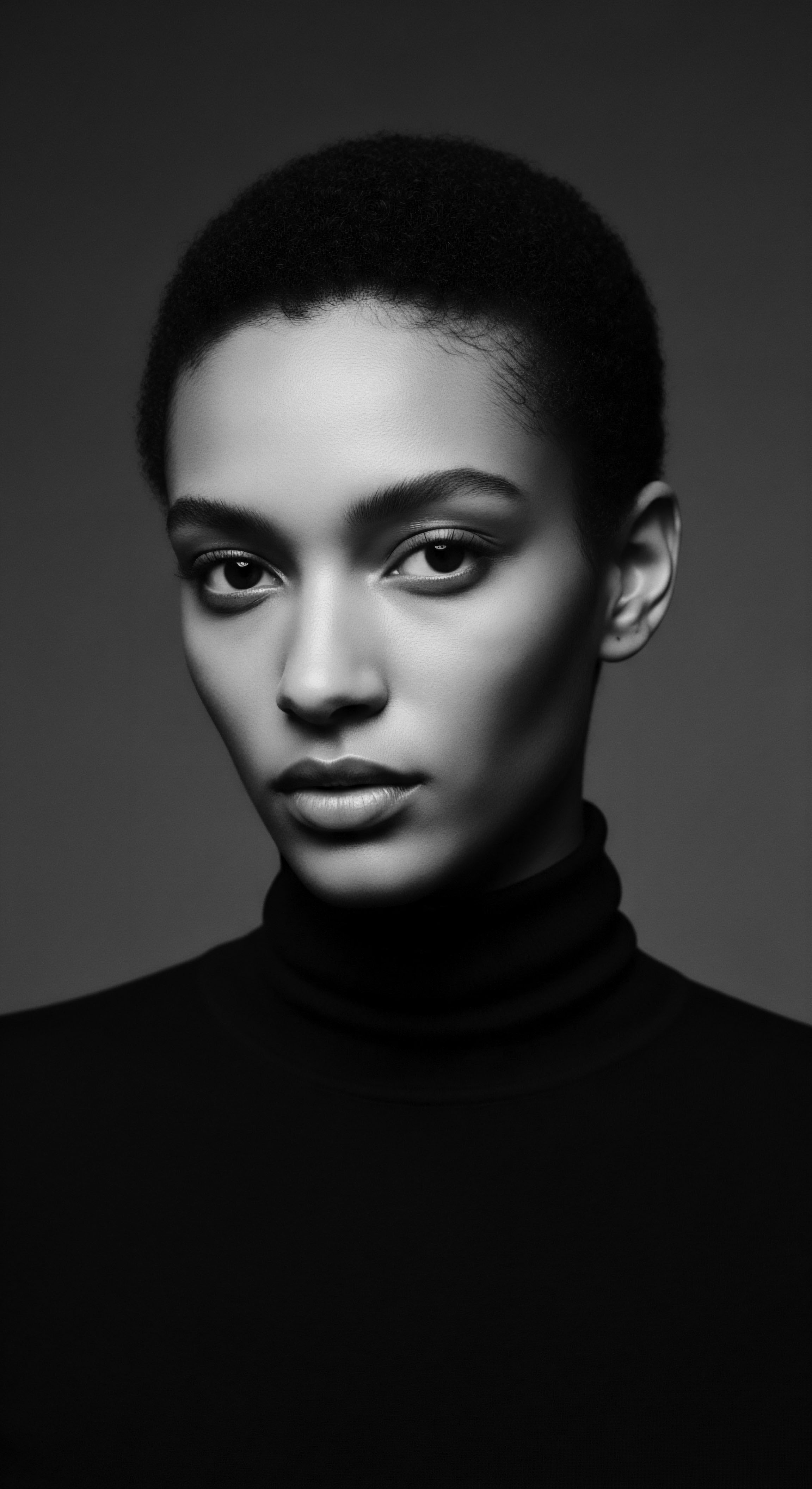
Intermediate
Moving beyond the foundational tenets, Natural Haircare manifests as a profound conversation between elemental biology and time-honored traditions. It is an exploration of how the inherent design of textured hair ❉ its delicate yet resilient structure, its propensity for volume and definition, and its unique response to moisture ❉ has shaped centuries of care practices across diverse cultures. This intermediate understanding begins to illuminate the echoes from the source, reflecting how ancient wisdom has consistently sought to work in concert with, rather than against, the hair’s intrinsic nature.
The meaning of Natural Haircare for individuals with textured hair, particularly those from Black and mixed-race ancestries, is inseparable from the deep heritage of these communities. It is a philosophy of care that transcends mere product application, embracing a holistic approach to wellbeing. The choices made within Natural Haircare often serve as a tangible link to ancestral knowledge, where the efficacy of traditional ingredients and techniques is often validated by modern scientific understanding.
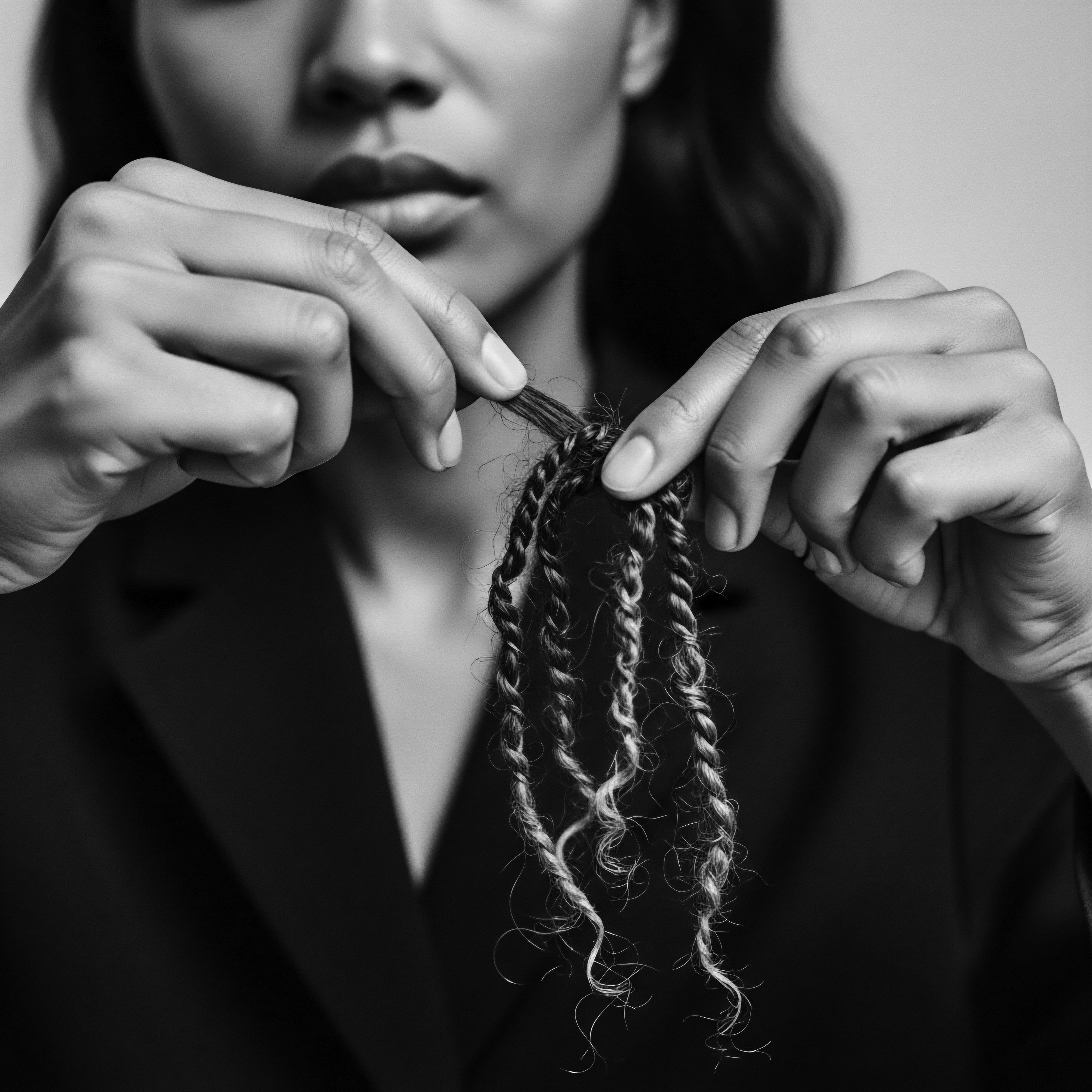
Echoes from the Source: Ancient Traditions of Care
The journey into Natural Haircare reveals a rich tapestry of ancestral practices, many of which predate contemporary beauty standards. These traditions, passed down through generations, demonstrate an intuitive understanding of hair’s needs, especially within communities whose hair naturally grows in coils, curls, and waves. In pre-colonial African societies, hairstyles were far more than aesthetic expressions. They conveyed social status, age, marital status, tribal affiliation, and even spiritual beliefs.
The communal act of hair grooming served as a vital social activity, strengthening familial and communal bonds. This reverence for hair meant that care practices were often meticulous and rooted in readily available natural resources.
Ancient traditions of hair care, particularly those from African societies, reveal a profound understanding of hair’s role in identity, community, and spiritual connection.
Consider the ancient Egyptians, who pioneered elaborate hair care rituals to maintain healthy, lustrous locks. They believed hair was a symbol of status and vitality. Their practices involved natural ingredients like olive oil, castor oil, and honey for moisturizing and nourishing. Clay served as a gentle cleanser, removing impurities without stripping natural oils.
These methods prioritized the hair’s integrity, mirroring the core principles of Natural Haircare observed today. Queen Tiye, an ancient Egyptian queen, is even depicted with an afro hairstyle, symbolizing the enduring presence of textured hair in history.
In West African cultures, the communal process of hairdressing strengthened familial and ethnic ties. Specific braiding patterns could signify ethnic backgrounds and geographical locations, acting as identifiers within diverse communities. This communal aspect of hair care persisted even during the transatlantic slave trade, where enslaved individuals often braided hair to reconnect to their African roots and even as a survival tactic, with patterns used to exchange messages or map routes to freedom.
The practice of Natural Haircare, then, is not merely a modern phenomenon; it is a continuation of practices deeply embedded in the historical memory and cultural expression of people of African descent. The return to these practices reflects a conscious effort to reclaim identity and self-definition in the face of centuries of enforced Eurocentric beauty standards.
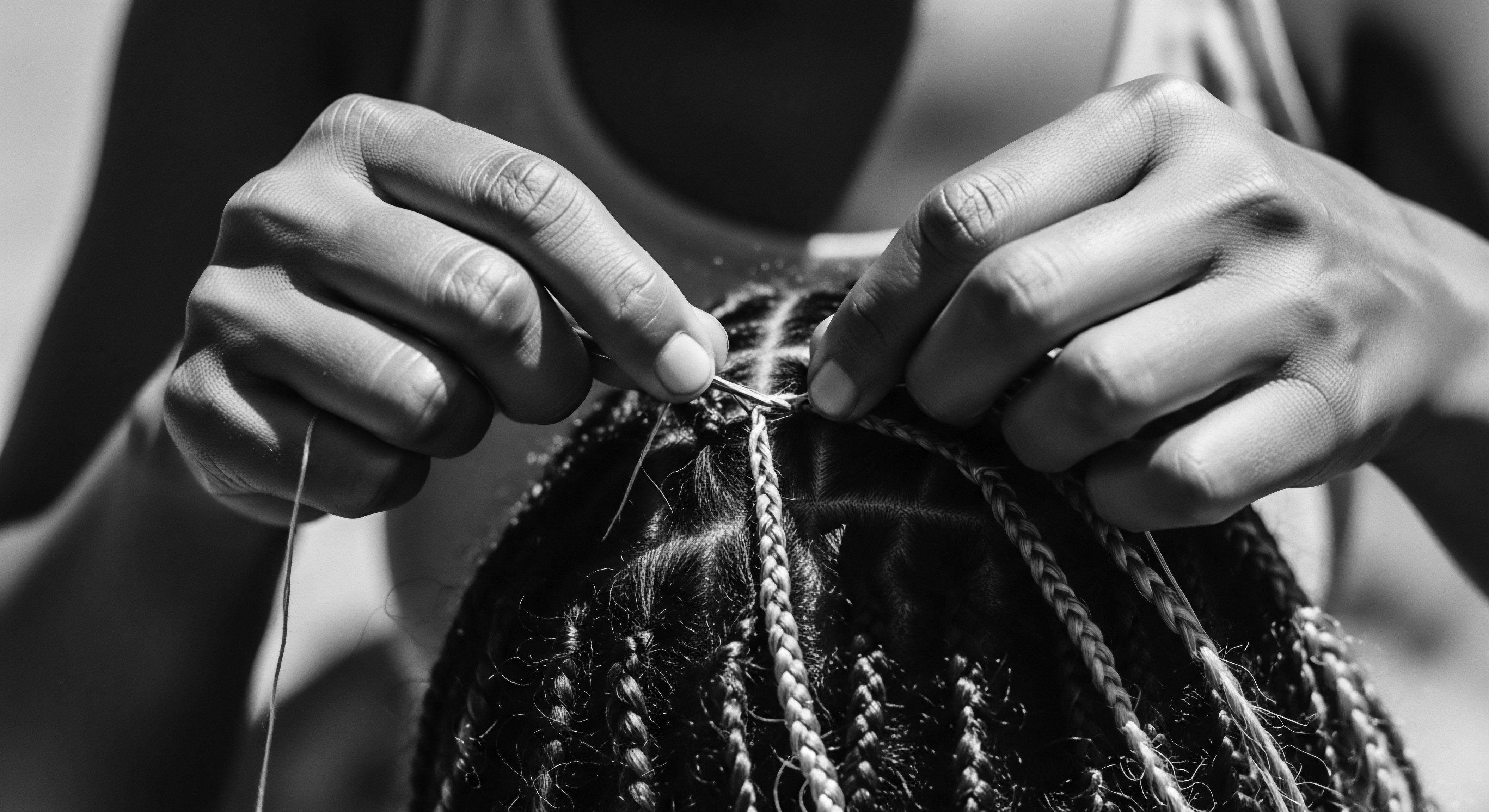
Academic
The academic definition and meaning of Natural Haircare extend into a complex interdisciplinary discourse, drawing from historical sociology, cultural anthropology, and specialized trichology. It signifies a comprehensive approach to hair wellness that respects the inherent structural composition of textured hair ❉ defined by its unique elliptical cross-section and curl pattern, rendering it more susceptible to dryness and mechanical damage. Beyond this biological understanding, Natural Haircare represents a profound counter-narrative to imposed beauty norms, particularly those that historically devalued Afro-textured hair. It is a deliberate re-centering of ancestral care practices, communal knowledge, and self-acceptance within the lived experiences of Black and mixed-race individuals.
This meaning emerges from a rigorous examination of the past, where hair served as a central marker of identity, status, and spirituality across African civilizations. The systematic stripping of these cultural expressions during the transatlantic slave trade, often through forced head shaving, served as a deliberate act of dehumanization. The subsequent imposition of Eurocentric beauty ideals fostered an environment where straight hair became associated with social mobility and acceptability, leading to widespread use of chemical straighteners and hot combs. Natural Haircare, in this academic context, signifies a conscious departure from these coercive narratives, advocating for a holistic restoration of esteem connected to one’s authentic hair texture and heritage.
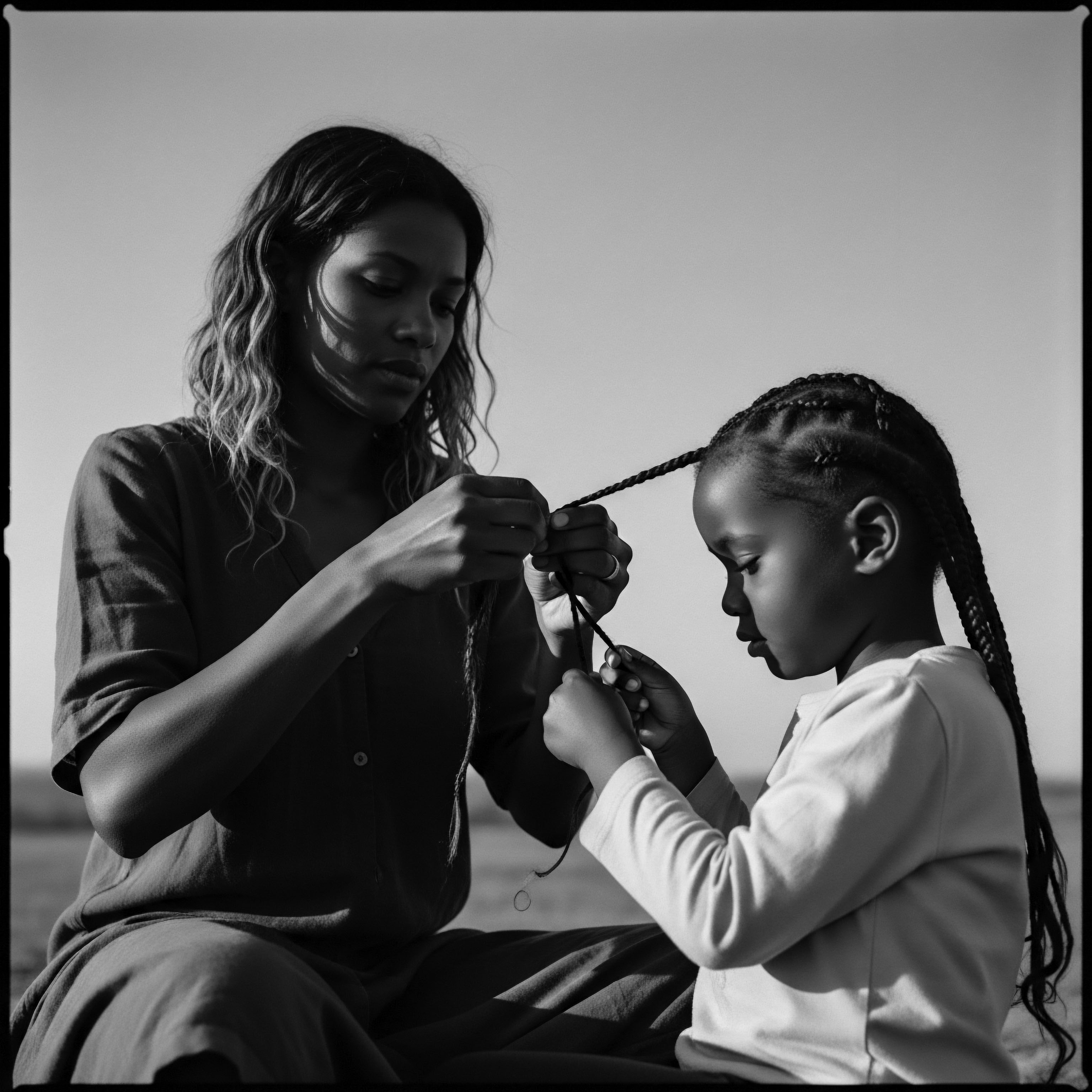
The Living Archive: “Kitchen Beauticians” as Bearers of Heritage and Knowledge
To fully grasp the intricate meaning of Natural Haircare, one must critically examine the historical phenomenon of the “kitchen beautician” within Black communities in the United States. This unique socio-economic and cultural institution, often overlooked in broader academic discussions of hair history, provides a potent illustration of ancestral practices adapting under duress, forming a resilient backbone for Natural Haircare long before its contemporary resurgence. The “kitchen beauty shop” was not merely a casual home-based business; it was a deeply symbolic and functional space that served as a clandestine repository of traditional hair knowledge and a vital hub for community cohesion and resistance during segregation.
The “kitchen beautician” phenomenon epitomized a profound cultural and economic resilience, preserving ancestral haircare wisdom in the face of systemic adversity.
In an era when racial segregation legally barred Black women from white beauty salons, and where formal beauty establishments for Black patrons were limited, the kitchen table transformed into a salon, a classroom, and a sanctuary. These informal spaces addressed a critical need for hair care services tailored to Afro-textured hair, which mainstream establishments neither understood nor catered to. Black beauticians, often with minimal capital, established these businesses directly in their homes, freeing themselves from dependence on white employers and creating self-sufficiency.
This entrepreneurial spirit, born of necessity, allowed Black women to control their work environments, fostering economic autonomy. The beauty industry, particularly in the early 20th century, thus offered one of the few avenues for significant Black female entrepreneurship.
More than economic enterprises, these kitchen beauty shops were sites of social and political activity. They became essential forums for community discussion, gossip, and the sharing of lived experiences under Jim Crow. Deborah Willis, a scholar and daughter of a beautician, recalls how “domestics. would leave work and come to our house to be beautiful for church.
shared stories about humiliating encounters.” Such spaces provided a psychological refuge, allowing Black women to “rebound from their direct confrontations with Jim Crow segregation.” This quiet resistance, woven into the very fabric of daily hair routines, empowered women to reclaim dignity and agency in a society that sought to deny it. Professor Tiffany Gill, author of Beauty Shop Politics: African American Women’s Activism in the Beauty Industry, noted that many Civil Rights leaders were beauticians who used their shops as clandestine hubs for political organizing, including preparing women for voter registration literacy tests and distributing NAACP flyers. This demonstrates how the personal practice of hair care intersected with broader sociopolitical movements, making the kitchen beautician a silent, yet potent, force in the Black freedom struggle.
A key statistic, illuminating the scale of this self-determination, reveals that even between 2012 and 2017, as the modern natural hair movement gained significant traction, sales of hair relaxers fell by 38%. While this statistic directly references a more contemporary period, it is an echo of the deeper historical shift initiated and sustained by “kitchen beauticians” who, through their tireless efforts and the intimate relationships they fostered, laid the groundwork for future generations to consider alternatives to chemical alteration. Their very existence and thriving businesses affirmed the validity of Black hair, creating a parallel economy and beauty aesthetic that defied the dominant narrative. This enduring legacy underscores how the practice of Natural Haircare, from its historical roots to its modern manifestation, is inextricably linked to collective identity, communal resilience, and a profound assertion of cultural heritage.
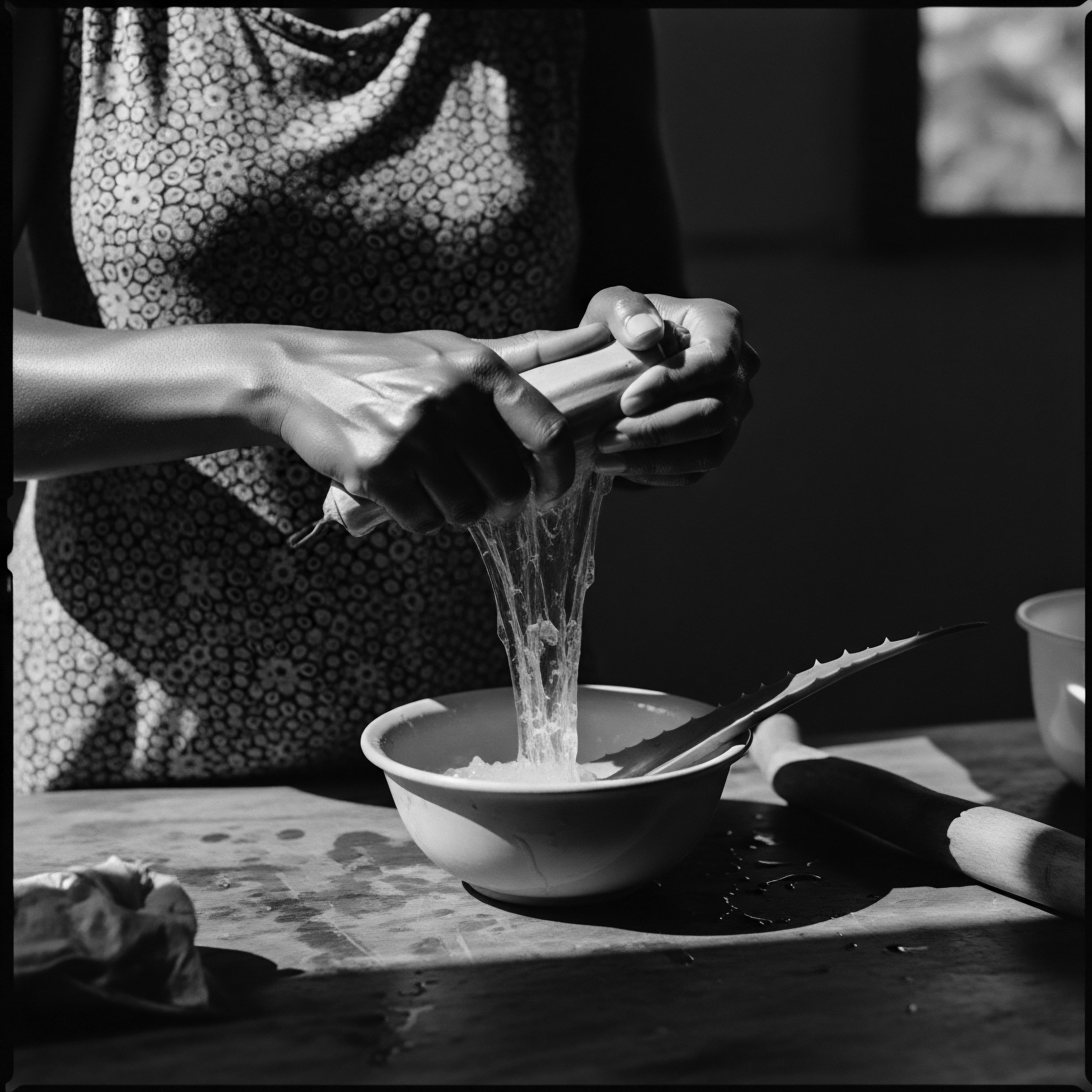
The Biology of Textured Hair: A Scientific Affirmation of Ancestral Wisdom
The intricate biology of textured hair provides a scientific basis for the ancestral practices observed in Natural Haircare. Afro-textured hair, characterized by its elliptical cross-section and tight, coiled structure, possesses a unique architecture. This coiling creates multiple points along the hair shaft where the cuticle layer is more exposed, making it inherently more susceptible to moisture loss and mechanical damage, such as breakage.
From a trichological perspective, the natural curvature of these strands means that the scalp’s sebum, or natural oil, does not easily travel down the entire length of the hair. This inherent dryness necessitates external moisture replenishment, a fact intuitively understood and addressed by ancestral practices using rich oils and butters. Ancient Egyptians, for instance, used olive oil, castor oil, and honey, recognizing their moisturizing properties, which modern science validates as effective emollients and humectants.
The use of botanical ingredients like shea butter, moringa oil, and chebe powder in traditional African haircare directly correlates with modern understanding of hair’s need for barrier protection, lubrication, and strength. These substances, rich in fatty acids, vitamins, and antioxidants, physically coat the hair shaft, reducing friction and preventing protein loss.
Furthermore, the protective styling techniques prevalent in traditional African communities ❉ such as braiding, twisting, and coiling ❉ serve a critical biomechanical function. By gathering individual strands into larger units, these styles minimize exposure to environmental stressors, reduce tangling, and significantly lower the frequency of manipulation, thereby mitigating breakage at those vulnerable curl points. This scientific understanding affirms the practical wisdom of practices passed down through generations, transforming them from mere aesthetic choices into validated strategies for maintaining hair health and integrity.
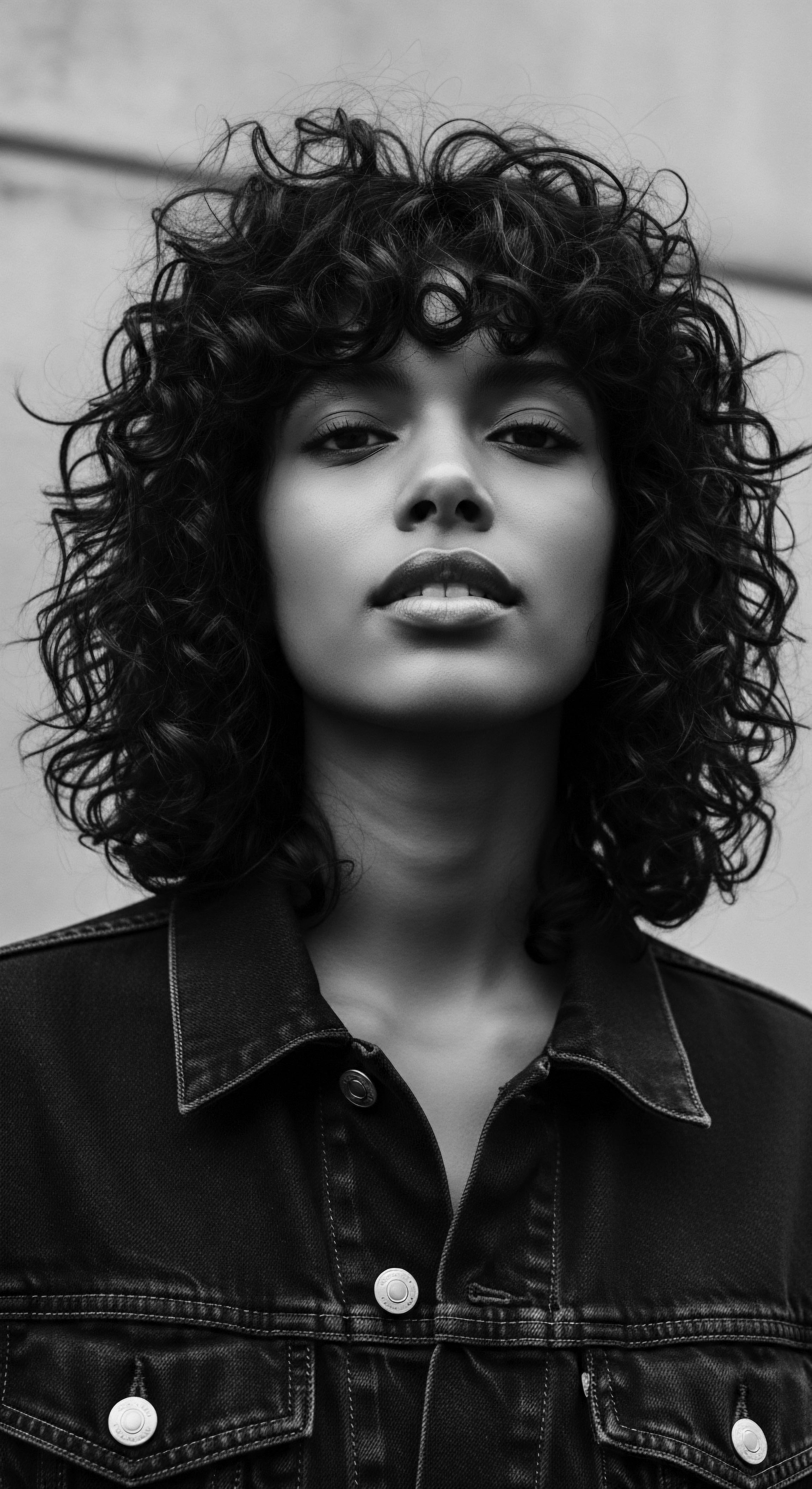
Sociocultural Implications: Beyond Aesthetics
The movement toward Natural Haircare is not simply a shift in beauty trends; it reflects a significant sociocultural reorientation. It signifies a profound act of self-acceptance and a rejection of Eurocentric beauty ideals that historically marginalized and denigrated Afro-textured hair. The embrace of natural texture becomes a powerful statement of pride and resistance, particularly for Black women, who have long navigated societal pressures to conform.
This re-evaluation of hair standards extends into personal and collective identity formation. For many, the journey to natural hair represents a reconnection with their roots and a celebration of their cultural heritage. This shift contributes to a broader cultural narrative that challenges dominant beauty paradigms and promotes inclusivity and diversity within the beauty industry itself. The online natural hair community, for instance, provides a space for Black women to share information, receive affirmation, and collectively codify a Black aesthetic, contributing to increased self-love and confidence.
The academic meaning of Natural Haircare is, therefore, a testament to the enduring power of cultural memory, the resilience of marginalized communities, and the scientific validation of ancestral practices. It underscores hair as a site of political contestation, personal liberation, and deep cultural reverence, demonstrating that care for textured hair is intricately woven into the broader tapestry of human dignity and heritage.
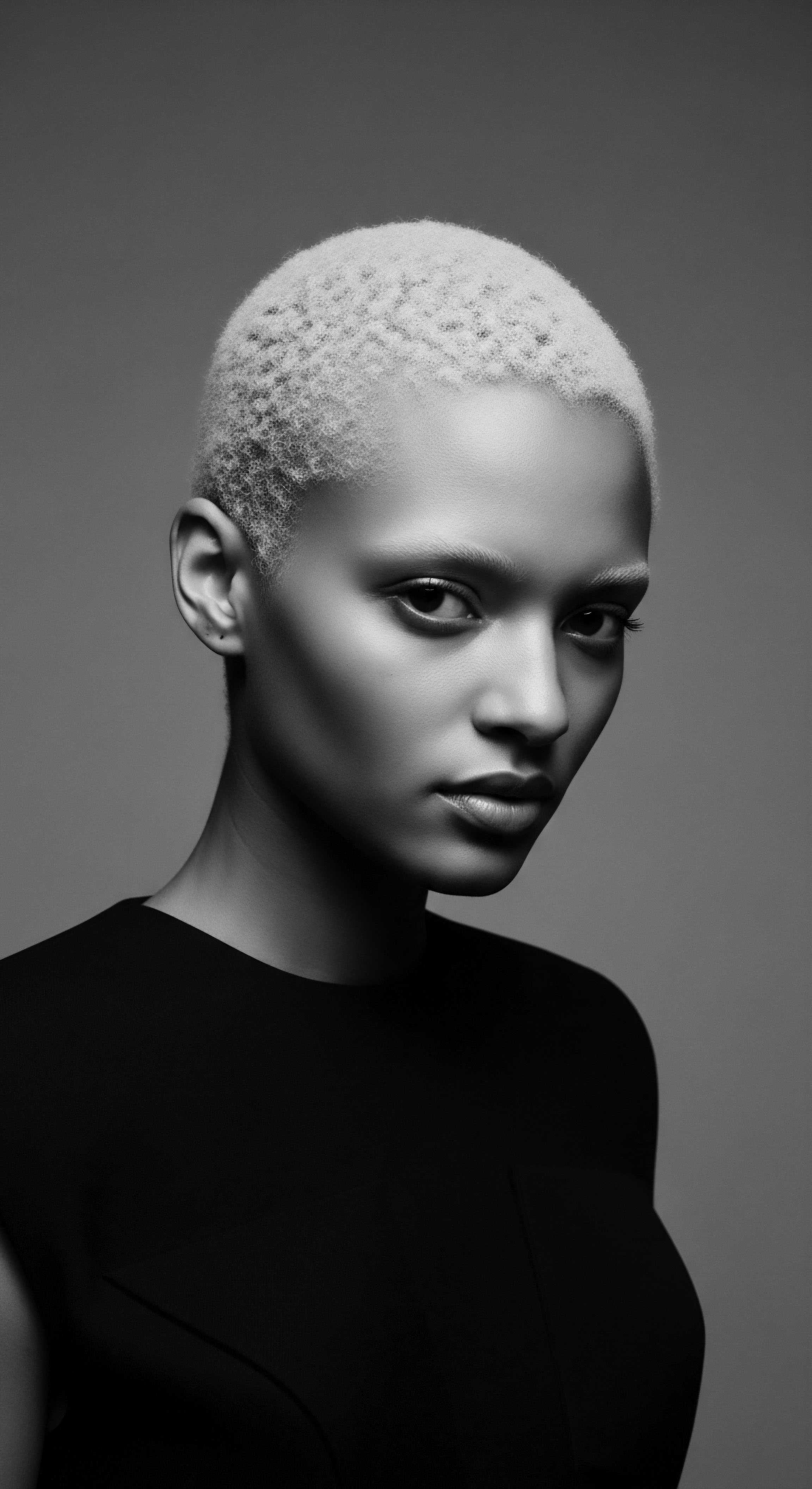
The Tender Thread: Living Traditions and Community
Within the broad definition of Natural Haircare, the concept of “The Tender Thread” emerges, highlighting the living traditions of care and community that continue to sustain and evolve ancestral hair practices. This dimension emphasizes the deeply communal and intergenerational aspects of hair grooming, particularly within Black and mixed-race families. It acknowledges that hair care has rarely been a solitary endeavor but rather a shared experience, binding individuals through touch, conversation, and the transfer of embodied knowledge.
This living thread stretches back to ancient African societies where hair styling was a collaborative process, strengthening familial and ethnic ties. The rhythmic act of braiding or oiling hair, often performed by mothers, aunts, or grandmothers, created spaces for storytelling, sharing wisdom, and fostering profound social bonds. This communal grooming continues today, finding its contemporary expression in family gatherings, social media groups, and dedicated natural hair salons, where a shared understanding of textured hair’s unique needs and the cultural significance of its care persists. The practice of hair wrapping, for instance, passed down through generations, symbolizes tribal affiliation or social status while also protecting hair from damage.
The tender thread also speaks to the empathetic language and nurturing approach that characterizes much of Natural Haircare advocacy. It centers on fostering self-acceptance and celebrating the diverse textures of hair, encouraging individuals to see their hair not as a challenge to be overcome, but as a sacred part of themselves, worthy of gentle, informed attention. This approach extends beyond physical care to encompass the psychological and emotional wellbeing linked to hair identity, which has been historically intertwined with struggles against discrimination.
The contemporary emphasis on “low manipulation” and “protective styles” within Natural Haircare echoes ancestral wisdom that intuitively understood the need to shield delicate textures from environmental stressors and over-handling. This continuity illustrates how modern scientific insights often affirm the efficacy of practices honed over centuries by communities deeply attuned to the specific needs of their hair. The tender thread, therefore, is a testament to the enduring power of community, inherited wisdom, and the gentle touch that continues to nurture both hair and soul.
The significance of Natural Haircare is further elucidated by its role in challenging and redefining beauty standards. For generations, people of African descent have faced societal pressures to conform to Eurocentric ideals, often leading to harmful chemical treatments and internalized biases. The natural hair movement, particularly its resurgence in the 2000s, has been a powerful force in dismantling these norms, advocating for self-acceptance and the celebration of diverse textures.
This movement is not merely a rejection of chemical straighteners; it is a profound reclamation of cultural heritage and a reassertion of agency. The choice to wear one’s hair in its natural state becomes a personal and political statement, signifying pride in one’s ancestry and a refusal to perpetuate beauty hierarchies. Research indicates that participation in natural hair communities fosters increased self-love and self-care among Black women, shaping a collective aesthetic that prioritizes authenticity. This collective voice strives to change narratives surrounding Black women’s hair, ensuring that the unique beauty of coils, curls, and kinks is not only accepted but celebrated as a testament to historical resilience and cultural richness.
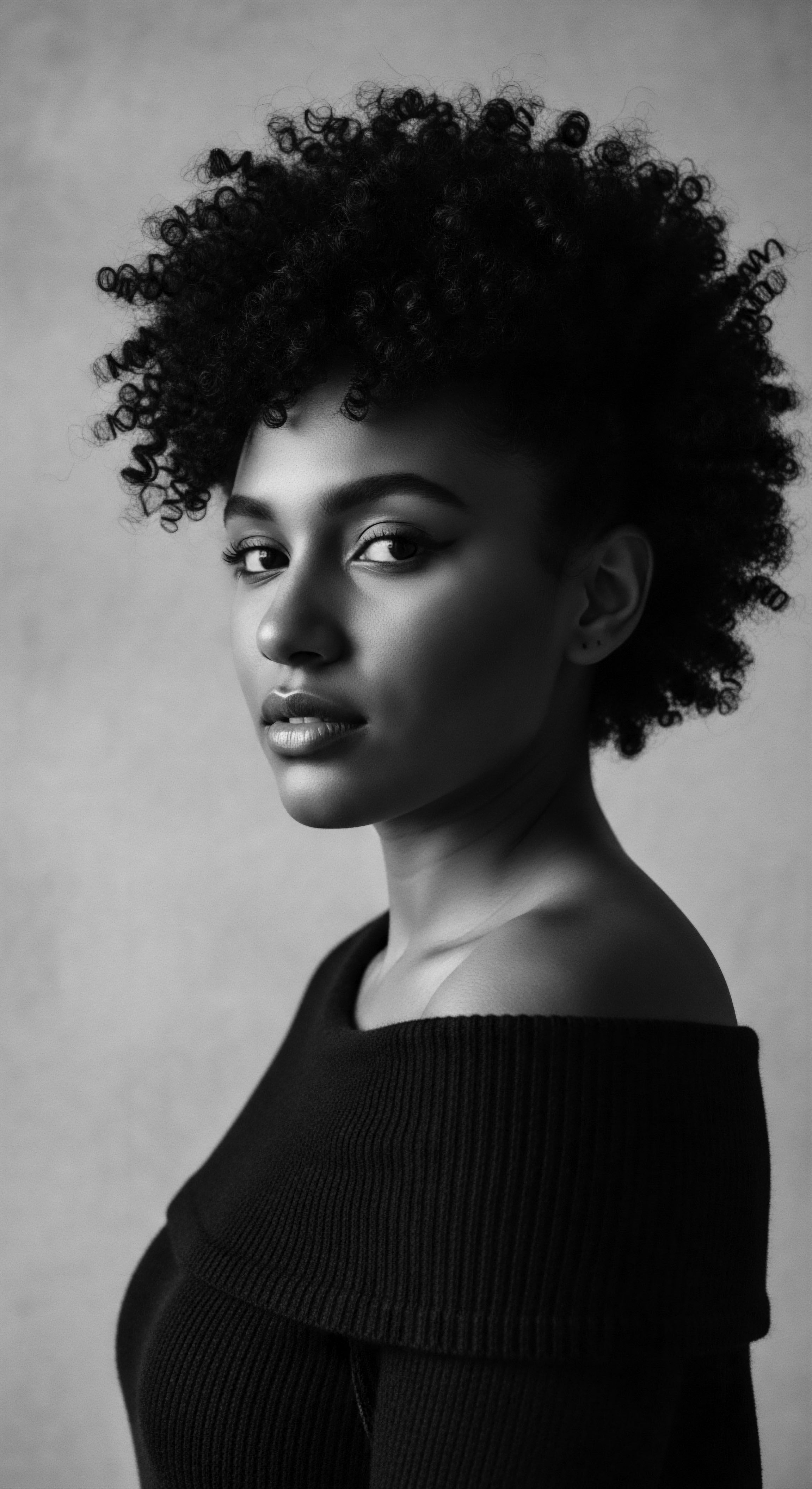
Reflection on the Heritage of Natural Haircare
As we conclude this meditation on Natural Haircare, we perceive it not as a fleeting trend, but as an enduring echo from the wellspring of ancestry, a profound continuation of conversations whispered across generations. It stands as a vibrant testament to the resilience of textured hair and the indomitable spirit of those who wear it. The deep cultural roots of Natural Haircare, stretching back to the communal grooming rituals of ancient Africa and surviving the profound ruptures of the transatlantic slave trade, affirm its indelible place within the human story. This care, passed from hand to hand, from mother to child, from sister to sister, represents a sacred trust, a living archive of wisdom etched into every curl, coil, and wave.
The journey of Natural Haircare continues to unfold, each strand telling a story of defiance, discovery, and deep reverence. It invites us to honor the wisdom of our forebears, to embrace the elemental biology of our bodies, and to recognize that true beauty emanates from a place of authenticity and heritage. The unbound helix, therefore, is not merely a descriptor of hair’s form; it is a symbol of liberation, a continuous unraveling of self-love, and a testament to the enduring power of tradition to shape a future where every texture finds its rightful place in the sun, unapologetically celebrated.
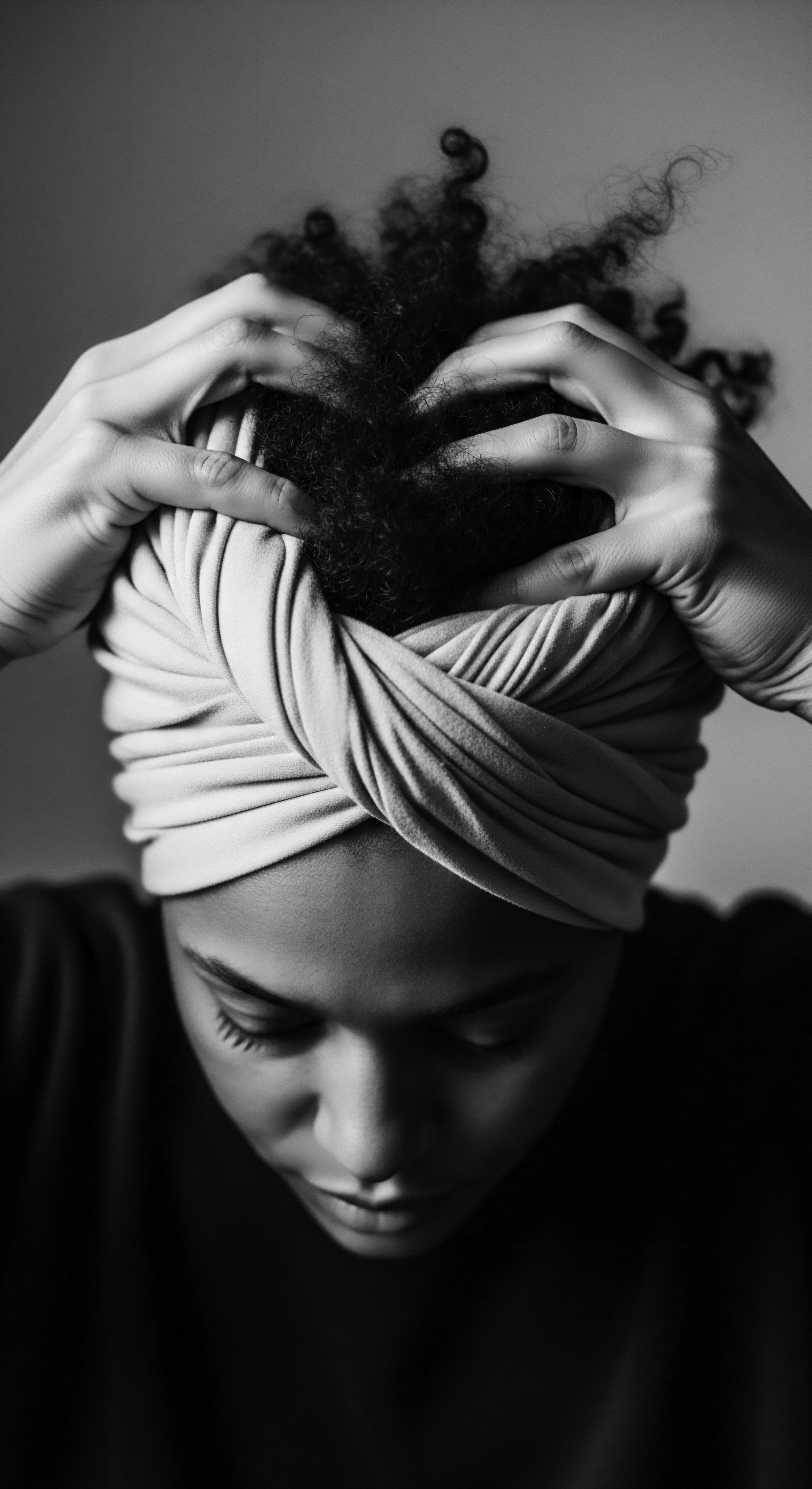
References
- Patton, T. D. (2006). Hot Comb: A True Story. Beacon Press.
- Randle, R. (2015). Hair Story: Untangling the Roots of Black Hair in America. St. Martin’s Press.
- Ellis-Hervey, L. et al. (2016). Afro-Textured Hair: The Social and Psychological Implications. Journal of Black Psychology.
- Davis, A. (2015). Hair: The Social and Political Implications of Black Women’s Hair. New York University Press.
- Gill, T. M. (2010). Beauty Shop Politics: African American Women’s Activism in the Beauty Industry. University of Illinois Press.
- Tharps, L. & Byrd, A. (2001). Hair Story: Untangling the Roots of Black Hair in America. St. Martin’s Press.
- Banks, I. (2000). Hair Matters: Beauty, Power, and the Politics of Hair. New York University Press.
- Byrd, A. & Tharps, L. (2014). Hair Story, Second Edition: Untangling the Roots of Black Hair in America. St. Martin’s Griffin.
- Peiss, K. (1998). Hope in a Jar: The Making of America’s Beauty Culture. Metropolitan Books.
- Walker, A. (2015). The Madam C.J. Walker Story. Wiley.

